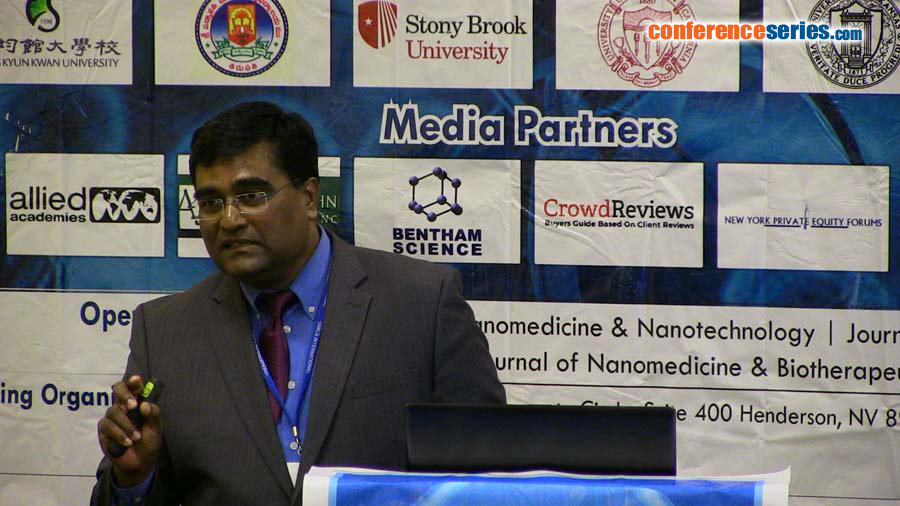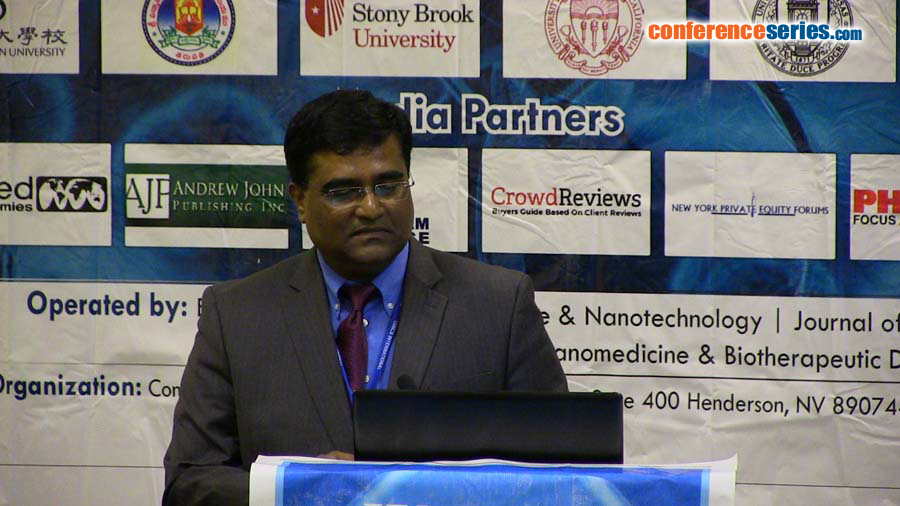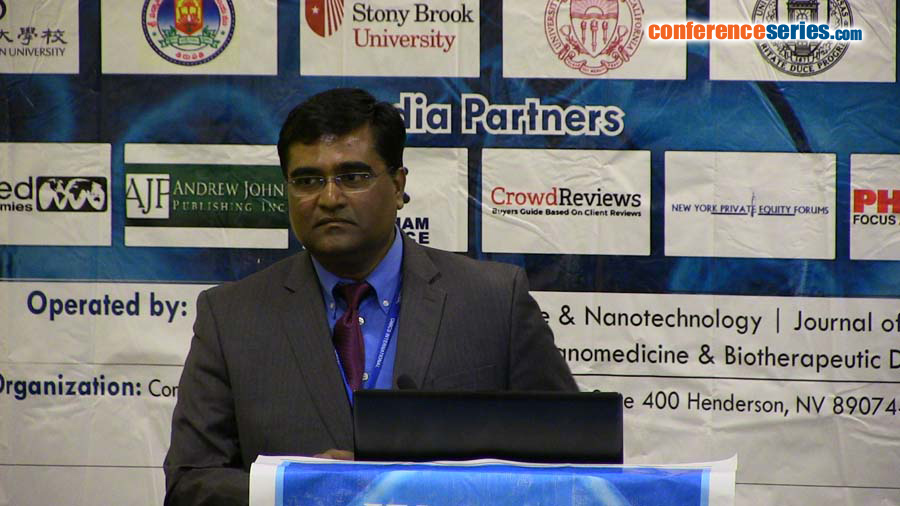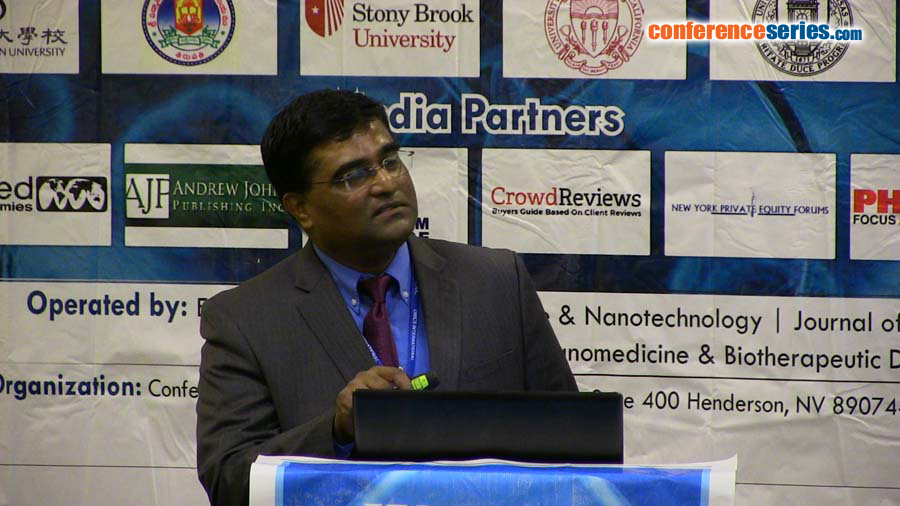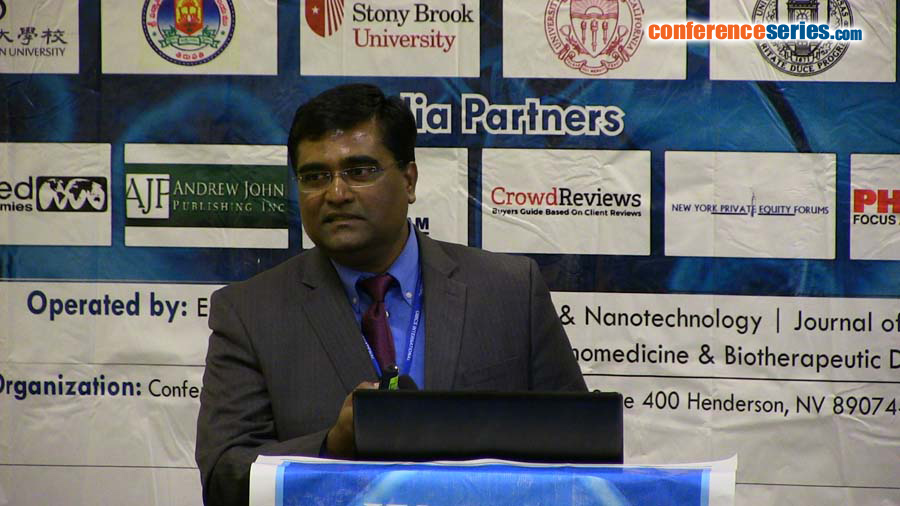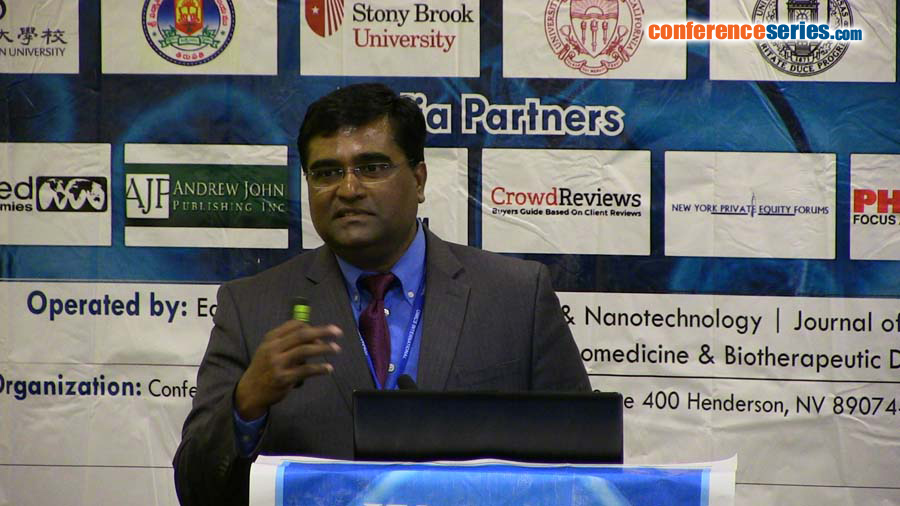
Amalraj Fabian Davamani
International Medical University, Malaysia
Title: Chitosan-propolis nanoformulation for combating Enterococcus faecalis biofilms in vitro
Biography
Biography: Amalraj Fabian Davamani
Abstract
Enterococcus faecalis are bacteria commonly detected in asymptomatic, persistent endodontic infections that grow in the presence or absence of oxygen. They cause urtinary tract infections, wound infections, bacteremia, endocarditis, endodontic infections and are also capable of forming biofilms in implant devices. Propolis is a resinous substance rich in flavanoids and has anti-bacterial properties. Malaysian propolis was obtained from the bee farms and tested for its effect on biofilm formation by E. faecalis in vitro. A twenty percent extract of propolis was prepared using ethanol or ethyl acetate. Chitosan-propolis nanoparticles were prepared by ionotropic gelation of chitosan with tripolyphosphate of sodium. Chromatographic analysis was performed by using HPLC. The nanoparticles were characterized in terms of average particle size, polydispersity index, zeta potential and morphological characteristics. The average particle size in the nanoformulation measured by transmission electron microscopy was 125-200 nm. The zeta potential calculated ranged between 33-37±6 mV depicting good stability. E. feacalis was allowed to form biofilms in 96-well microtitre plates (Nunc) and the efficacy of the different extracts of propolis as well as the nanonformulation in inhibiting the biofilms was tested. Biofilm growth was monitored and bacterial viability in the biofilm was calculated. Nanoformulation of propolis gave the best inhibitory effect (at 75 μg) compared to ethanol and ethyl acetate extracts (200 μg). The effect of the nanoformulation on the expression of bacterial genes involved in biofilm formation was also studied. Sustained release by biodegradable chitosan flavonoids nanoformulation is able to provide long-term disinfection leading to effective thereapy.


